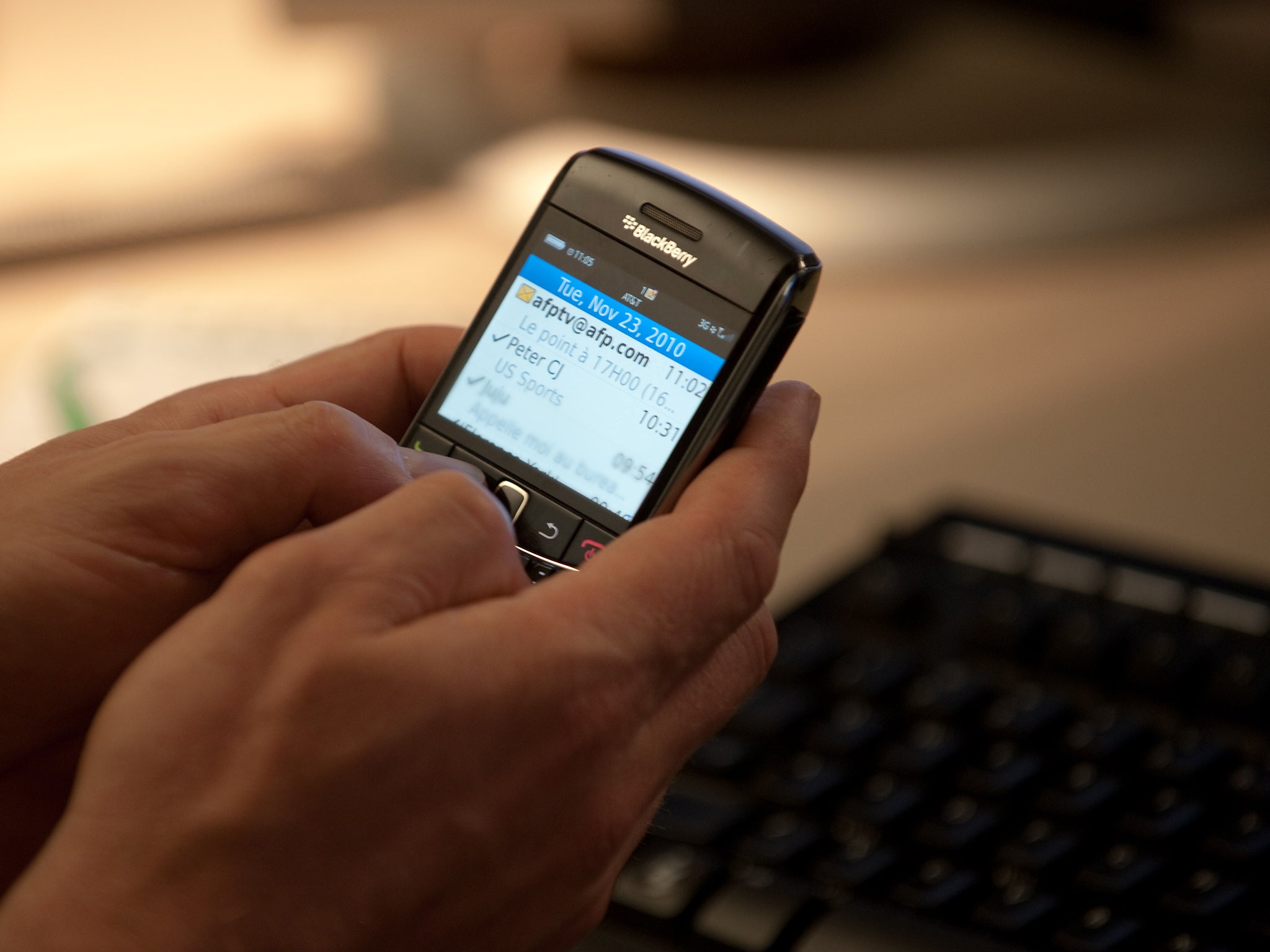What your mindless daily habits reveal about you, according to science
These small, seemingly insignificant behaviors can provide meaningful insights into your emotions

There are so many actions throughout your day that go unremembered — pulling off a few sheets of toilet paper, sending a quick email to a colleague, picking up toiletries at the drugstore.
But these small, seemingly insignificant behaviors can provide meaningful insights into your emotions, your personality traits, and the way you approach life in general.
We dug up psychological research and expert opinion on what different daily habits might reveal about you.
Note that none of this information is definitive, and that these general findings might not apply to you specifically. Rather, they can provide starting points for learning more about your own and others' motivations.
Your shopping habits may reveal your preference for detail

A visit to the drugstore could tell you a whole lot about the person you're with.
Do they scrutinize the ingredients on each tube of toothpaste until they find one that suits their needs? Or do they choose one quickly and assume they know exactly how it works?
That first type of consumer is what scientists call an “explanation fiend”; the second is an “explanation foe.”
A series of experiments published in 2012 found that explanation fiends score high on measures of cognitive reflection, meaning they analyze information to death and prefer lots of detail about products. Explanation foes, on the other hand, score low on measures of cognitive reflection, meaning they don't do well with so many details and prefer more general information.
The way you hang toilet paper may reveal how assertive you are
Relationship expert Gilda Carle surveyed 2,000 men and women about the way they hang their toilet paper. She also asked them to fill out surveys about how assertive they were in their relationships.
As Carle told The Independent, results showed that those who roll the toilet paper over tend to be more dominant, while those who roll it under tend to be more submissive.
Interestingly, some people reported that they change the direction of the roll no matter where they are — and those people were more likely to have dominant personalities.
Your eating habits may reveal how you approach life

The Huffington Post spoke to experts on food-related behaviors and learned that our eating habits can say a lot about our personalities.
Specifically, slow eaters generally like to be in control and know how to appreciate life. Fast eaters tend to be ambitious, goal-oriented, open to new experiences, and often impatient.
Adventurous eaters probably like to step out of their comfort zones, while picky eaters are likely neurotic in different areas of their lives.
Finally, those who separate different foods on their plate are inclined to be detail-oriented and disciplined.
Your gait may reveal how vulnerable you feel
We tend to make a lot of assumptions about each other based on the way people walk. For example, we associate looser gaits with extroversion and adventurousness, and clipped walkers as more neurotic.
But those assumptions are generally wrong.
The only thing that research suggests we can accurately predict from someone's walk is how vulnerable they feel. In one 2013 study, researchers asked inmates to watch video clips of different people walking and judge which were most vulnerable to victimization.
Results showed that inmates who scored higher on measures of psychopathy were more likely to pick out walkers who had been victimized in the past. When asked why they made their judgments, many said they could tell by the way the person walked.
Your language style may reveal your romantic feelings
The psychologist James Pennebaker has spent years studying function words, such as “the,” “this,” and “I.”
He's found that the way we use these words can provide clues to our gender, our age, our mental health status, and whether we're romantically interested in our conversation partner.
For example, Pennebaker and colleagues listened to recordings of speed-dates between men and women and found that when couples used similar language styles — specifically, when they used similar function words — they were more likely to go on a date.
As NPR reported, that's not because the couples were more similar to begin with — the researchers observed this phenomenon even among people who were very different. Instead, it's probably because we shift our language when we're interested in someone.
Your emails may reveal whether you're an extrovert or a narcissist

Look closer at the next email you receive — it could provide some insight into the sender's personality traits.
Writing in Fast Company, psychologist Tomas Chamorro-Premuzic says that extroverts are more likely to talk about fun-related things, like music and parties. People with lower emotional intelligence tend to use emotional and negative words, such as “depressed” and “angry.”
Perhaps unsurprisingly, narcissists generally talk about themselves, using words such as “I,” “me,” and “mine.”
Your punctuality may reveal whether you're Type A or B
Just because your friend is always late doesn't necessarily mean he's inconsiderate.
One study found that those who are chronically late are probably more laid-back, “Type B” individuals.
Meanwhile, psychologist Linda Sapadin told The Atlantic that she sees four types of personalities who are always late (you can be a combination of all four).
The perfectionist won't leave the house until everything is in order. The crisis maker gets a high from racing to meet the deadline. The defier is rebelling against authority and societal norms. The dreamer is overly optimistic about how much they can get done in a certain amount of time.
Your nervous tics may reveal whether you're a perfectionist
There's a reason why some people engage in what scientists call “body-focused repetitive behaviors,” (BFRP) like biting their nails, pulling their hair, or picking their skin.
In one 2015 study, researchers filmed people while they were in a situation that was either stressful, frustrating, relaxing, or boring. Results showed that those who scored high on measures of perfectionism were more likely to display these behaviors, especially in the stressful, frustrating, and boring conditions.
As Scientific American reported, boredom may be a trigger for BFRP because those behaviors may be a way for perfectionists to feel better by doing something instead of nothing.
Your addiction to your phone may reveal your emotional stability

Most of us are guilty of checking our phones when we're waiting in line at the grocery store, commuting to work, or even talking to friends.
Recent research reveals what it means if you're constantly staring at that screen. The 2015 study measured cell phone “addiction” by asking people how much they agreed with statements such as “I get agitated when my cell phone is not in sight” and “I spend more time than I should on my cell phone.”
Results showed that emotional instability was a key predictor of cellphone addiction.
Interestingly, the study also found that introverts — people who expressed feelings of shyness and bashfulness — were less likely to be addicted to their phones.
The way you organize your inbox may reveal how controlling you are
Whether you're an inbox hero or you don't mind watching your “unread” count tick up to 10,001, the way you maintain your email inbox may say a lot about your personality.
Those who file and delete emails as soon as they receive them may have a greater need for control and order in their lives.
Those who save emails — meaning they read them but don't delete them — may be perfectionists, who think that they'll get around to addressing those messages eventually.
Lastly, those who leave emails unread, without filing or deleting them, may feel overwhelmed. Alternatively, they may also be smart because they recognize that reading those emails isn't helping them make substantive progress.
Your selfie style may reveal how open you are to new experiences
People make a lot of assumptions about your personality based on your selfies.
In one 2015 study, students at a Chinese university looked at selfies on a Chinese microblogging site. Most students assumed that pressed lips predicted extraversion and openness and that being alone in a photo meant the person was neurotic. But these judgments were generally wrong.
The only accurate observation students made was that positive emotion in a selfie generally predicted the person's openness to experience.
Researchers also found that friendlier people were more likely to take pictures from below; more conscientious people were less likely to reveal a private space in the background; those who were open to new experiences were more likely to display positive emotions; and neurotic people were more likely to make a duck face.
Read more:
• Analysts question the way Apple describes its data
• Mike Ashley has a plan to save BHS with no job losses
• Investors think central banks have lost their power
Read the original article on Business Insider UK. © 2016. Follow Business Insider UK on Twitter.
Join our commenting forum
Join thought-provoking conversations, follow other Independent readers and see their replies
Comments
Bookmark popover
Removed from bookmarks